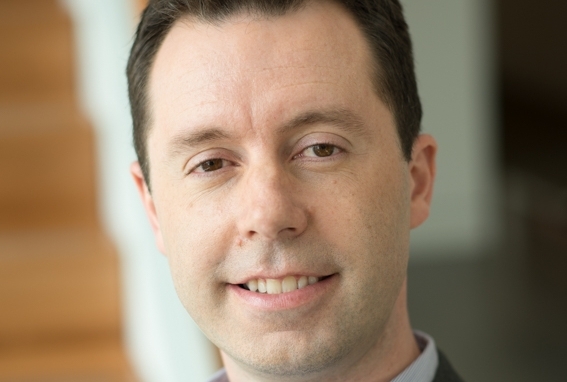Weill Cornell Medicine (WCM) and the New York Genome Center (NYGC) were recently awarded a federal grant from the National Cancer Institute (NCI) to support a joint cancer genomics data center for the research and clinical interpretation of tumors. The grant will provide funding of $490,000 per year over the next five years.
The WCM-NYGC center will perform computational analyses examining DNA and RNA to understand the role of different mutations and to assess their clinical relevance in treating cancer. It is one of 11 specialized genomic data centers nationwide selected to lead the next phase of The Cancer Genome Atlas (TCGA), an initiative between NCI and the National Human Genome Research Institute, which has generated comprehensive, multi-dimensional maps of key genomic changes in 33 types of cancer. The TCGA’s cancer genomics database, comprised of more than two petabytes of genomic data, has been made publically available and is helping the cancer research community improve the prevention, diagnosis and treatment of cancer. By joining this national network, researchers at WCM and NYGC will gain early access to newly produced genomic data, as well as cutting-edge genomic analyses and methods.
The WCM-NYGC multidisciplinary team will be led by co-principal investigators Dr. Olivier Elemento, an associate professor of physiology and biophysics, associate director of the HRH Prince Alwaleed Bin Talal Bin Abdulaziz Al-Saud Institute for Computational Biomedicine and head of the Caryl and Israel Englander Institute for Precision Medicine’s computational biology group at Weill Cornell Medicine; Dr. Mark Rubin, director of the Englander Institute for Precision Medicine and the Homer T. Hirst III Professor of Oncology in Pathology at Weill Cornell Medicine; and Dr. Michael Zody, senior director of computational biology at NYGC. The investigators have a broad range of complementary experience in cancer genomics — Drs. Elemento and Zody in bioinformatics and computational biology, and Dr. Rubin in molecular pathology.
“This is a very exciting collaboration between two outstanding institutions with complementary expertise,” Dr. Elemento said. “The NYGC brings major computational infrastructure strengths and a world-class team of computational biologists. Weill Cornell Medicine brings extensive experience in the clinical interpretation of cancer genomes. It’s a perfect match.”
The goal of this joint center is to obtain new knowledge to understand the correlations between mutations and patient data for research and clinical cancer genomics. The aims of the research are:
- to analyze mutations to predict patients’ responses to immunotherapy
- to facilitate identification of mutations that are driving disease and enabling cancer cells to grow
- to study the role of mutations involving large portions of chromosomal abnormalities
“We are excited about strengthening the collaborative genomic sequencing and bioinformatics research between investigators at Weill Cornell Medicine and the New York Genome Center,” Dr. Zody said, “and delighted for the opportunity to join the next phase of the TCGA program.”
The team has already developed several analytical computer programs that interpret various types of mutations frequently found in cancer genomes and is poised to run these tools on data provided by the TCGA initiative. Over the course of the grant, researchers will develop complementary software and methods designed to improve functional and clinical interpretation of tumor profiles. This collaborative research will utilize Weill Cornell Medicine’s expertise in clinical genomics demonstrated by the first New York State-approved whole exome sequencing test and leverage NYGC’s unique computational infrastructure with more than 5,000 cores and 10 petabytes of storage and data management expertise.
The research carried out by the WCM-NYGC center is designed to advance scientific knowledge in the field of cancer precision medicine and achieve the following objectives:
- the ability to reliably evaluate the precise identity and frequency of clinically relevant mutations in individual tumors and across tumors
- to develop tools for reinterpreting tumor profiles when new clinically relevant mutations become available
- to create software to uncover the immune landscape of individual tumors and predict which patients will likely respond to immunotherapy, which T-cell clones are shared across patients, and which immune checkpoints are more active in individual tumor types.
- to develop broadly applicable tools to uncover the effect of inherited and acquired mutations on expression of known cancer genes, and to annotate complex structural mutations
- to develop tools to detect how mutations correlate with the abnormal expression of genes
Co-principal investigators on the grant include Dr. Toby Bloom, deputy scientific director at the New York Genome Center; Dr. Nicolas Robine, manager of computational biology at the New York Genome Center; Dr. Marcin Imielinski, a core member and assistant investigator at the New York Genome Center and an assistant professor of pathology and laboratory medicine and of computational genomics at the HRH Prince Alwaleed Bin Talal Bin Abdulaziz Al-Saud Institute for Computational Biomedicine at Weill Cornell Medicine; and Dr. Ekta Khurana, an assistant professor of computational genomics in the Institute for Computational Biomedicine and an assistant professor of physiology and biophysics at Weill Cornell Medicine.

